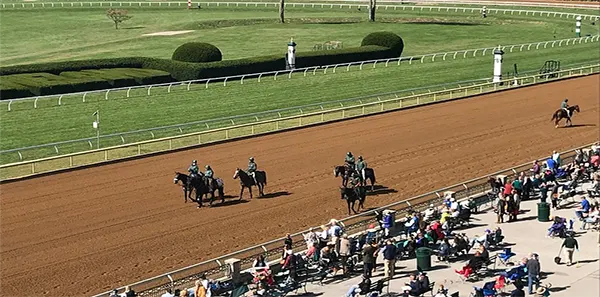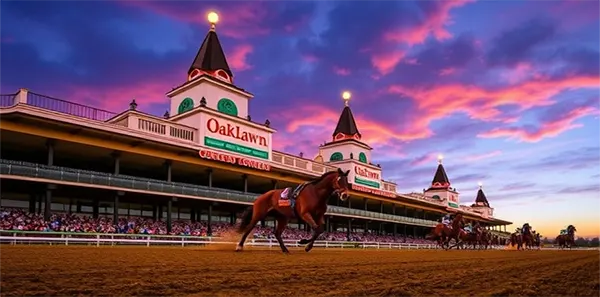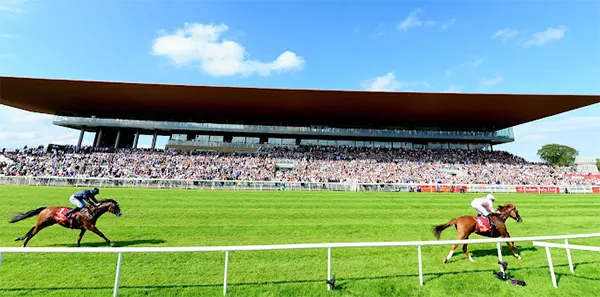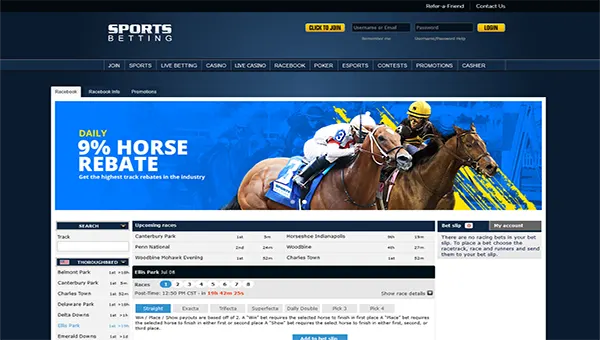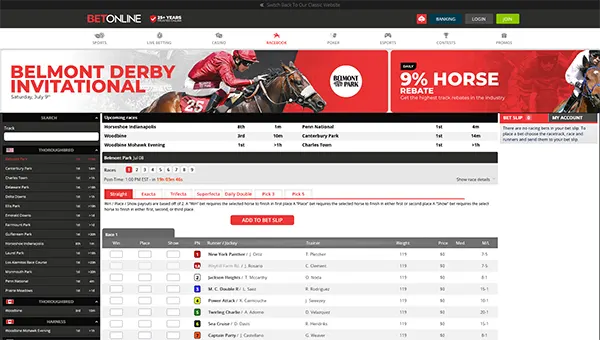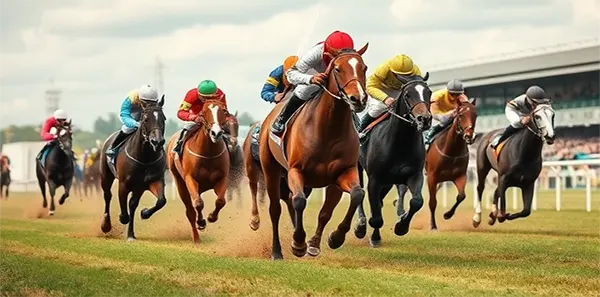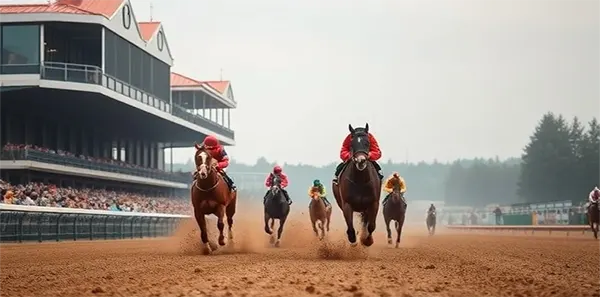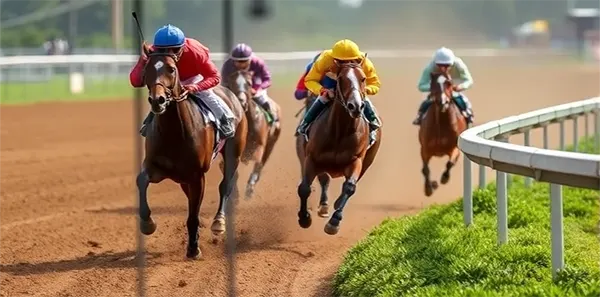Understanding Horse Racing Odds
This article helps you with knowledge and understanding horse racing odds and how you can bet smartly on horse racing.
Understanding Horse Racing Odds and How to Bet Smartly
Horse racing is an incredibly exciting sport to bet on as it offers you an adrenaline rush that’s pretty hard to match elsewhere. But if you’re new to the world of horse racing, understanding the odds and making smart bets can seem like a bit of an overwhelming task. That’s where we come in though – in this guide, we will break it all down for you. By the end of it, you’ll have the knowledge you need to understand horse racing odds and place your bets like a pro.
What Are Horse Racing Odds?
Horse racing odds represent the probability of a horse winning a race, as well as the potential payout you’ll receive if your bet is successful. The odds are usually set by bookmakers, who research and scrutinize a number of factors before setting the odds, such as a horse’s form, the jockey performance, the track conditions, and the betting patterns to decide on the likelihood of a certain horse winning the race.
Formats and Types of Horse Racing Odds
The odds are presented in three main formats – fractional, decimal, and moneyline (American). Here’s a quick explanation of each:
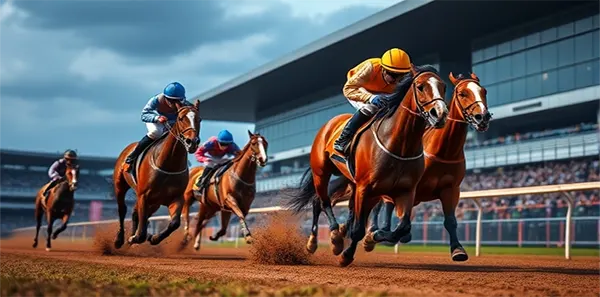
Fractional Odds
Fractional odds are the most common format you’ll see in horse racing, particularly in the UK and Ireland. They’re displayed as two numbers separated by a slash (e.g. 5/1, pronounced “five to one”). The first number represents the potential profit, while the second represents your stake/bet.
An example of this, if you bet $10 at 5/1 odds and win, you’ll then earn $50 in profit plus your initial $10 bet, which gives you a total of $60.
Decimal Odds
Decimal odds tend to be more popular in Europe, Australia, and Canada. These odds are shown as a single number (e.g. 6.00) that represents your total return for every dollar you bet.
For example, your $10 bet at odds of 6.00 would return $60, this includes your $50 profit and your $10 bet.
Moneyline (American) Odds
Moneyline odds are the most popular format in the United States and are shown as plus or minus numbers (e.g. +500 or -200). Odds with a “+” sign show the profit you’ll make on a $100 bet, while odds with a “-” sign indicate how much you need to bet to win $100.
For example, +500 means a $100 bet will return $500 in profit, while -200 means you’d need to bet $200 to win $100.
How Are Understanding Horse Racing Odds Chosen?
Horse racing odds are fluid and can change based on a few factors, including:
- Public Betting Trends: If a large number of bets are placed on a particular horse, its odds may shorten (e.g., from 5/1 to 3/1) to reflect increased demand.
- Horse Performance: Factors such as a horse’s recent wins, track preference, and health status can influence odds.
- Race Conditions: Weather, track surface, and distance can all affect a horse’s chances and its odds.
It’s important to note that the final odds are only locked in once the race begins. This is known as starting price (SP) odds, and they decide the payout for all winning bets.
Different Types of Bets in Horse Racing.
There are many ways to bet on horse racing, from easy bets that tend to be a bit more straightforward to more complex betting. Here are the most popular types of bets we’d suggest looking into:
Straight Bets and Understand Horse Racing Betting Odds
These are great choices for beginners and focus on individual horses:
- Win: Bet on a horse to finish first. If it doesn’t win, you lose your stake.
- Place: Betting on a horse to finish first or second. This offers a lower payout but higher chances of success.
- Show: Bet on a horse to finish in the top three. Payouts are smaller but easier to win.
Exotic Bets
These bets involve predicting the outcome of multiple horses and tend to be abit more challenging but can bring you higher payouts as a result:
- Exacta: Pick the first two horses in the correct order.
- Trifecta: When you pick the first three horses in the correct order.
- Superfecta: Pick the first four horses in the correct order.
Accumulator Bets
Also known as parlays, these bets combine many smaller bets into one. To win, all your selections must be correct. For example, betting on the winners of three different races in a single bet.
How to Read a Race Card
Race cards are important tools for betting smartly. They provide key information about each horse and the race itself. Here’s what to look for:
- Horse’s Name and Number: Each horse has a unique number and name for identification.
- Form Figures: A series of numbers or letters showing the horse’s recent performance. For example, “1-2-3” shows the horse finished first, second, and third in its last three races.
- Jockey and Trainer: The skill and experience of the jockey and trainer can really have an impact on a horse’s performance.
- Weight: The total weight a horse will carry during the race, including the jockey and any extra weights assigned in handicap races.
- Odds: The current odds for the horse, which can help you gauge its chances.
Smart Tips for Understanding Horse Racing Odds and Betting
Betting on horse racing is as much about strategy as it is about luck. Here are some tips to help you bet smartly:
- Do Your Homework Before placing a bet, research the horses, jockeys, and trainers. Look for patterns in form,like consistent top finishes or strong performances on similar tracks.
- Understand the Track and ConditionsSome horses do better on certain surfaces like turf vs. dirt or under specific weather conditions. A horse’s ability to handle the track can be a deciding factor.
- Compare Odds Across BookmakersNot all bookmakers will offer you the same odds, so shopping around can maximize your potential payout. Online betting sites and sportsbooks make it easy to compare odds.
- Start with Straight BetsIf you’re a beginner, focus on win, place, or show bets. They’re simpler and less risky than exotic wagers.
- Set your Budget and Stick to ItIt’s easy to get caught up in the excitement, but responsible betting is important. Set your budget for each race day and never try to chase your losses.
- Look for ValueDon’t always bet on the favorite. Sometimes, horses with slightly longer odds (e.g. 6/1 or 8/1) offer you better value, especially if their recent form indicates they’re contenders.
Betting Mistakes to Avoid
Even the most experienced bettors can fall into these traps:
- Betting Blindly: Always research before betting instead of relying on hunches.
- Chasing Favorites: The favorite doesn’t always win, and its odds often offer minimal return.
- Overcomplicating Bets: Exotic bets are tempting but you need to understand that they carry a higher risk. Stick to easier bets until you’re more experienced.
Final Takeaway
Understanding horse racing odds and betting smartly doesn’t have to be daunting. By familiarizing yourself with the basics, doing some research, and practicing responsible betting, you can enjoy the sport while increasing your chances of success. Remember, horse racing is as much about the experience as it is about the outcome.
Parx Racing


